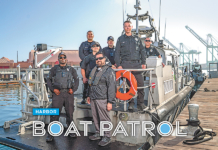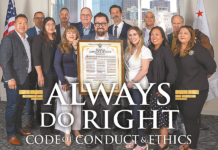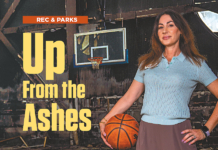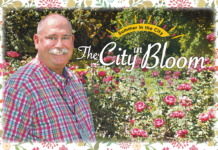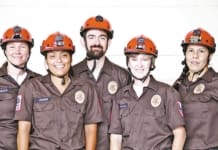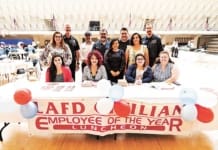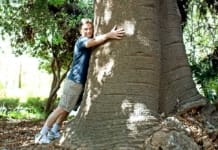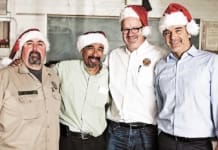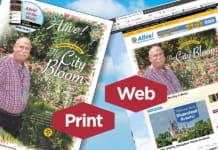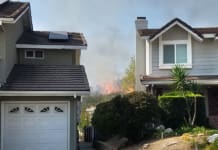Photos by Summy Lam, Club VP of Marketing, and courtesy LADOT
The Traffic Talkers
As with most things, the layer underneath the visible layer is the one that makes it all work.
That describes Transportation’s Communications unit, a small but strong team of Dispatchers and administrative personnel that does many things – answer telephone calls for Parking Enforcement, traffic control, Traffic Signal Repair and impound booting for LA.
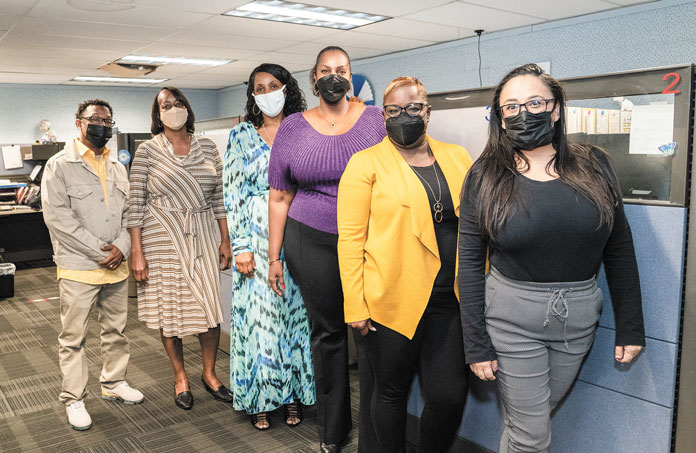
The unit keeps in touch minute by minute, 24 hours every day, with the hundreds of LADOT Traffic Officers, Official Police Garages, LAPD, LAFD and other City departments to keep traffic moving, to keep your alley free of cars parked illegally, to keep traffic signals working as they were designed, to ensure traffic signs are properly posted, and to provide timely responses to concerned citizens reporting obstructions. The unit is critically important to LADOT in keeping the streets of LA safe and moving.
LADOT Communications handles an average of 30,000 calls per month. That’s a lot of coordination for a team of 24 Operators and four Supervisors.
Meet the team in this month’s feature, and help Alive! give them the recognition they so deserve.
Special thanks to Ivy Garnett, Sr. Communications Information Rep II, and Lt. Susan Rahtz for welcoming us to the unit.
![]()
|
ABOUT LADOT Communications Operators answer telephone calls and dispatch calls for Transportation’s Parking Enforcement, traffic control, Traffic Signal Repair and impound for the entire City of Los Angeles. The Operators also dispatch calls to the Booting (impound) units, which handle high-priority scofflaws (unpaid citations), as well as enter all information relayed to them into the Paylock, Etims and CLETS systems. The unit processes every impounded vehicle. It’s done initially by the Communications Operators and later completed by the VIPU (Vehicle Information Processing) Unit. Operators answer service calls for parking violations and temporary tow requests from the Los Angeles citizens and dispatch calls from LAPD and LAFD for traffic control. The unit answers on average 30,000 calls every month. Most are calls to be dispatched for parking violations, traffic signal/sign repair or traffic control requests from the LAPD and LAFD.
COMMUNICATION INFORMATION REPRESENTATIVES III
|
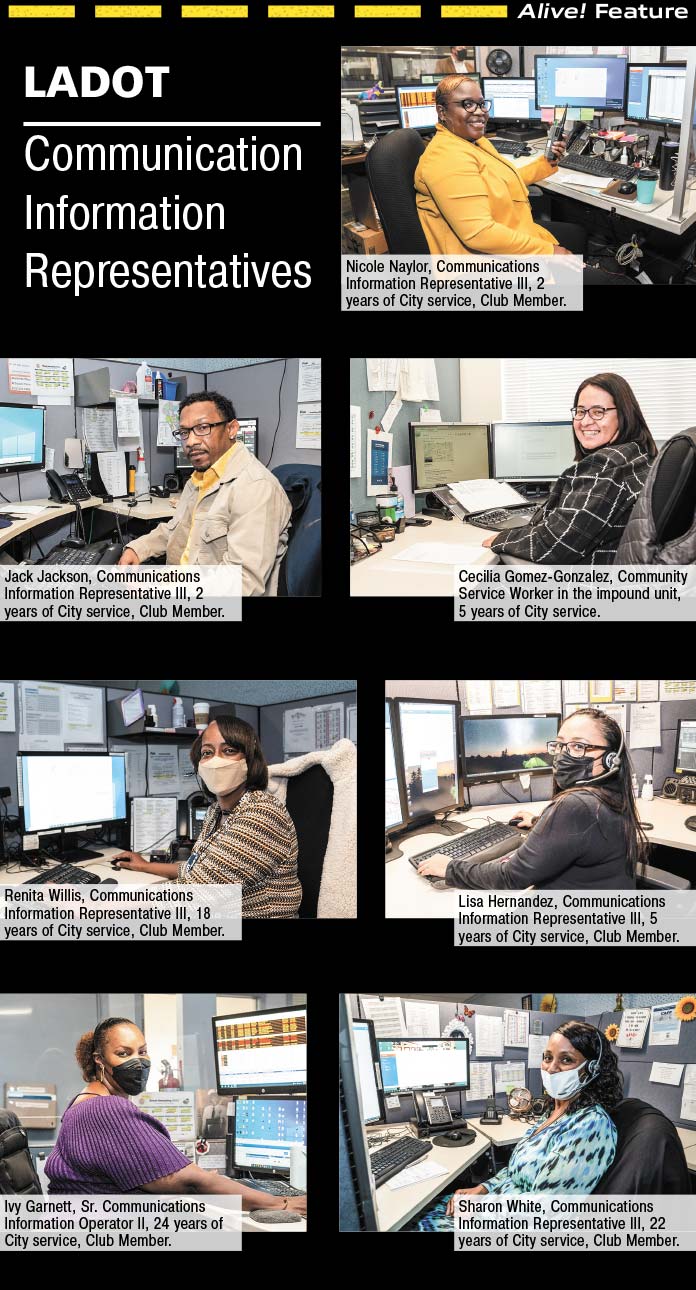

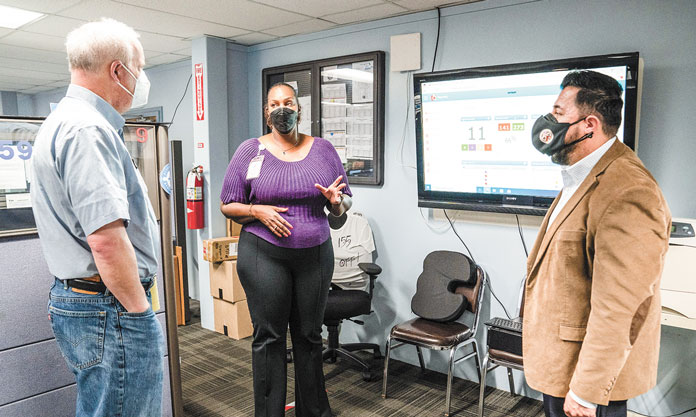
Street Connection
On Feb. 1, Club CEO Robert Larios and Alive! editor John Burnes interviewed four members of the Dept. of Transportation Dispatch team. They were: Ivy Garnett, Sr. Communications Information Rep II, 24 years of City service; and Communications Information Rep IIIs Renita Willis, 18 years; Gustavo Barba, 28 years; and Alex Gonzalez, 3 years. Ivy, Renita and Gustavo are Club Members. The interview took place via Zoom due to pandemic protocols.
Alive!: Damien, thank you for giving your time to our readers today.
Damien Young: Sure.
Thanks for joining us today. Let’s start with a question for each of you. Talk about your career briefly. What path did you take to get to your current position?
Ivy Garnett: I started as a Traffic Officer back in 1997. I came into Communications in 2003 after a serious injury in the field. I came in and worked for literally for one week in the Communications Center, and I knew that I was here to stay. I’ve been in Communications since 2003.
Renita?
Renita: I started as a temporary employee at the City Clerk’s Office. I worked in a Call Center as a Supervisor. When the position became open for DOT Communications, I applied and I was hired. That was 16 years ago. I’ve been working as a Communications Representative ever since.
Great. Gustavo?
Gustavo: I started with the City with the Dept. of Water and Power, but I was an exempt part-time employee, so I needed to move on. I came to this position, and I’ve been here since 1999.
And Alex, talk about your career path.
Alex Gonzalez: I applied for the City in 2017 for this specific position. I went through the process, the testing and interviews and then I started with the City in May 2019.
Ivy, give us a status check. How is the Department doing through COVID?
Alex: As of right now, our staff is doing well. We have had some setbacks since the pandemic started. In the beginning of the pandemic, we had no problems with illness, but of course, it was inevitable that we would eventually. We’ve have had our ups and downs. But throughout all of that, we’ve been able to manage and keep the Center running.
Were there times when you were interrupted or down for a while?
Ivy: In the beginning, there was quite a bit of a shuffle on how we were going to arrange ourselves. We are in a very small office and we’re close together. The idea was to separate, so we had some dispatchers in an alternative location for a while.
Gustavo: We did that for three months.
.Connecting to Streets.
In general terms, tell us what your team does.
Ivy: The operators dispatch calls. They take in calls from the citizens. They take in calls from the LAPD and the Fire Dept. to dispatch Traffic Officers for traffic control and things of that nature.
I supervise the Operators as far as making sure the calls are put out in a timely way and making sure that the work tickets are clear so that they’re understood by any Operator. I make sure everyone’s time is recorded properly, that we have enough coverage on the floor and enough coverage for the entire day. That special events are covered. Those are the aspects that I handle.
Renita: We also do signal repair – we also dispatch out for signal and sign repair, when they’re not operating or need attention. We dispatch repair crews to fix the signals or if there’s a sign that needs to be reposted. We handle accidents or any damage to the City property – we dispatch repairs on those as well.
Gustavo: I take all kinds of calls – Fire Dept., Sanitation, Street Services. Citizens call us about a pothole and we report it to Street Services. I had one this morning.
Alex: Or a tree down.
Renita: Water main breaks, too. It’s a lot.
Gustavo: Street Lighting, too. When street lights are out.
Wow. You have a lot of numbers there in your Rolodexes, so to speak.
Gustavo: Yes, we do.
Do you get calls through the City’s 311 system?
Ivy: We do not receive calls through the City 311 system. We do receive referrals from 311 that deal with parking, and we also refer citizens to 311 when needed.
Gustavo: We make sure we send them to the right department.
And you’re 24/7, correct?
Gustavo: 24/7, seven days a week.
Alex: Everybody’s hit on a little bit of what we do. Like Ivy said, we take calls from citizens, the PD, the FD, sometimes the LADWP and Sanitation for whatever it may be. It might be someone blocking the driveway or in a red zone or in front of a hydrant, to traffic control for a fire or the end of a pursuit or a vehicle blocking an alley that doesn’t let the Sanitation truck through. Sometimes people will knock over a stop sign, whether it’s on purpose or by accident, and we take all those calls that come into us. We try and help everybody we can, the best we can, as fast as we can because the City doesn’t stop, and neither do we.
Ivy: We take on average up to 29,000 to 30,000 calls a month. And we dispatch 5,700 calls a month on average. We are nonstop on the phones and dispatching. Calls coming in, calls going out, our Operators are multitasking.
Gustavo: A lot of it.
Renita: We get a lot of activity regarding the Temporary Toll Dept.
Do you work with Transportation’s Special Events Services like big sporting events, or the Oscars, those sorts of things?
Ivy: We are involved, but not in the planning process. When requested, an Operator is assigned to the Command Post for the special event. At the Command Post we assist the LADOT Officer in Charge and work along with the LAPD and LAFD as well as the City Engineers. We’re there to provide support to the field personnel.
Renita: We see an increase of calls from the public regarding the closures as well, so we have to give them instructions on how to get out of their residence or to their street.
Ivy: We may have one or two Operators at the Command Center, one Operator and a Supervisor. And then we’ll have an additional Operator working here at our Center just to help with the extra influx of calls that we’ll get for any Special Event.
The Operators request to work Special Events. When working the Special Events, they are dedicated just to that event, not any other assignments or frequencies.
.Impound.
Ivy: Also, we work closely with the department’s VIPU, the Vehicle Information Processing Unit. They are responsible for every vehicle that we impound. They enter the vehicles into the system, making sure they’re processed so that the citizen can locate their impounded vehicle. The vehicles that we impound must be processed immediately. VIPU is definitely an important part of our operation.
They’re also Transportation employees?
Ivy: Yes. They’re part of LADOT. They don’t dispatch calls. Every single vehicle that we impound gets processed through them. They handle everything that we impound. They ensure the vehicles are entered into the CLETS system and the vehicle owners are notified of the impound.
I see. Do you also then coordinate with outside towing agencies to tow impounded vehicles?
Ivy: Yes, we do.
Gustavo: We work with 18 different Official Police garages. We call them several times a day.
Let’s say there’s a vehicle accident in a criminal investigation. Do you handle the towing and the movement of that vehicle if it’s evidence?
Gustavo: The LAPD handles it. Unless the LAPD requests us to impound it, then we’ll contact a tow company. But for the most part, it’s LAPD on the crime scene.
Ivy: Any calls where the LAPD is requesting a Traffic Officer for a crime scene or an end-of-pursuit, we must have what is called a Code 4. That means that the crime scene has been secured, and it is safe for the Traffic Officer to direct traffic or assist with an impounding if needed.
Renita: The Fire Dept. will call us for those vehicles set on fire, burnt out vehicles, to get them off the street. The Fire Dept. will call us to tow them.
Ivy: We handle inquiries all the way from the Hollywood Hills down to San Pedro, and then as far east as Boyle Heights-Central over to the beach, West LA, and the Pacific Palisades area. From this small office, we handle all of that. It’s just 25 people – the entire amount of operators that we have on all the shifts. We have a huge workload with just a few of us handling it. I’m passionate about Operators and what they do because they work very, very hard.
You impact the citizens of LA a lot more than they realize.
Ivy: Yes. This is true.
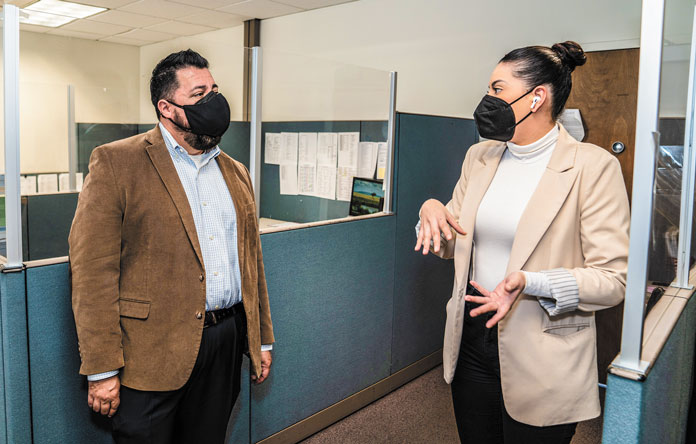
.Training.
What’s the training regimen? How does one become an LADOT Operator?
Ivy: After the hiring process, we have a three-week training program, and there are different modules that they go through starting with just City information on how they are to conduct themselves as a City employee. And then we go on to the regular program of how to take telephone calls, how to dispatch and how to handle different frequencies. We have some frequencies that are not like the others, such as our Boot and B frequencies as they’re called because those two frequencies handle just scofflaw vehicles – vehicles that are being impounded or booted because of unpaid citations. That would be different from a regular frequency.
Traffic signal repair frequency is also different because they handle just the calls for traffic signal outages as well as sign repair; we have a full course where Operators learn how to handle all of the responsibilities of a CIR. The classroom module lasts for three weeks, then they come into the Communications Center and are trained for an additional two weeks, focusing primarily on answering the telephones and dispatching.
.Brief History.
Can you give us a brief history of LADOT’s dispatch unit? Why was it created?
Ivy: I was not with the department at the inception of LADOT Communications. LADOT Parking Enforcement became an agency in the 1980s, branching from the LAPD. LADOT Communications worked out of Piper Tech at the time.
Gustavo: I heard it started as a trial case to see if it would work out, and it ended up working out.
Ivy: Right.
Gustavo: It did come from the LAPD. It wasn’t 24 hours back then either.
Ivy: Right.
.Working Together.
Which City of LA Departments do you work with a lot? I know you refer calls to many different departments, but are there other departments that you work with a lot and coordinate frequently?
Alex: We coordinate a lot with of course the LAPD and the Fire Dept. because they call us and request traffic control at different locations. We work with them constantly. As Renita mentioned earlier, we work with the LADWP when we have water main breaks and things of that nature.
Renita: We get a lot of requests from Sanitation regarding vehicles blocking bins or streets with bins. We get a lot of calls about that.
.Not the LAPD.
Do people confuse you with LAPD dispatch, LAFD dispatch and any other dispatch in the City? What’s it like, always having to explain who you are and what you do?
Ivy: People often confuse us with the LAPD, but even more so with 311 thinking that we are City Information. We get callers who call in with an LAPD issue – for example, a moving violation. They’re complaining because a car was going down the street too quickly. We get calls like that quite often. But even more so we get calls that are just requests for City information.
Alex: Moving violations don’t involve us. We deal with parking, parking, parking. If it’s a vehicle that’s illegally parked, that’s what we do. If it’s moving, that’s not us.
Renita: We get a lot of calls regarding individuals living inside of vehicles. These calls are often referred to the enforcement area office, who then needs to coordinate with other City agencies to determine the best possible approach. LADOT Traffic Officers do not cite people, only vehicles.
Alex: I’ve had citizens calling, saying that there’s a dumpster blocking a lane of traffic. Unfortunately, that’s not us, that’s Sanitation. I’ve also had citizens call and say there’s a piece of machinery, a forklift or a crane, into a red zone and unfortunately, those are items that we can’t impound. We don’t impound forklifts or cranes or machinery like that. That goes through a Street Use Inspector.
Gustavo: Most of those cranes and big machinery rigs are usually City equipment, so an Officer will not even respond to that or give a ticket or impound because it is a City vehicle.
Ivy: Sometimes people don’t like us. The first thing they think of is we’re sending Traffic Officers out to give them citations, or we’re sending people out to tow their cars. But the citizens forget that we’re letting them be able to get out of their driveway safely, allowing them to drive down the street safely and to park safely. We’re helping people.
Of course. Do you ever feel the need to call the LAPD and ask them to accompany your Traffic Officer?
Gustavo: It happens.
Renita: There are some hot locations especially in the alleyways where there is only one way in and one way out. It’s a safety concern, so they may request the Police Dept. to respond with that as well.
Ivy: Traffic Officer safety is our priority. We do not send Traffic Officers out into any unsafe situations, ever. Our Operators are instructed to verify that the location is secured before an Officer is dispatched.
Officer safety is the top priority for our Operators. That’s the number one priority.
Gustavo: Correct.
Alex: I’ve had a few calls from citizens saying there’s someone blocking the driveway and they’re refusing to move. And there’s an attitude or cussing. Automatically I’m not going to send a Traffic Officer, for their safety. I’ll advise the citizen that they have to contact LAPD. Our Officers’ safety is number one. If it’s not a safe environment, we’re not going to dispatch them out.
Do you ever get any calls where people want to park outside their own house, but someone is there already, and they ask you to tow the vehicle away?
Gustavo: All the time.
Ivy: Yes, we do.
We have to remind a citizen that the city street is a public street, so everyone can park there. Many times we get calls when the citizen feels like, :I need you to come and remove this vehicle because they parked in front of my house.” They don’t realize that anyone can come park in front of their house. We become most unpopular then!
We also get calls for a vehicle that’s sitting on the street for several days without moving. That’s been a really big problem with the pandemic, especially because a lot of people are working at home.
[Note: Abandoned or stored vehicles can be reported by calling (800) 222-6366. The Dispatch Center does not receive these calls. – Ed.]
Alex: Yes.
Ivy: So they have no reason to move their car. They’re working at home, they’re ordering food in, they’re doing Instacart. They have no reason to go outside or to move their car. We have to refer them to our abandoned hotline – an abandoned vehicle is any vehicle that sits on the street for three days or more. That upsets people because they know it’s their neighbor’s car, but they just want it to move because they want to park there.
Gustavo: Another thing I have noticed due to the pandemic is we get a lot of complaints about cones on the street. They’re using a trashcan to save parking spaces. Unfortunately, there’s nothing that we can do regarding that.
Alex: One car parked in the middle where two cars can fit. Unfortunately, that’s not illegal. There’s no parking violation we could allow for that, so that’s another time where we become the bad guy when we tell them something they don’t want to hear.
Renita: And the disabled parking. Anybody with a placard can park there (not just them). They get upset about that.
What about the uncomfortable situation of encampments on streets. How do you handle that?
Alex: We get a lot of calls on a daily basis regarding people living in their car or a motor home RV parked in front of their house. We go through the steps of asking: Is someone living in the vehicle? Our Traffic Officers don’t have much in ways of defending themselves, so if the person living in the vehicle is hostile, that’s not a safe environment for our Officers. We refer that to the Police Dept.
Makes perfect sense.
Renita: Overnight parking is also an issue. You can’t imagine how many people actually wake up at 2 a.m. to call to report overnight parking – those signs that restrict parking from 2 a.m. to 6 a.m. People will call us at exactly 2 a.m. to report it.
.Success Stories.
Tell us some success stories.
Ivy: Just working through the pandemic alone is a success story for us. We are a very small office, and if two people are down, that’s a big thing. We dispatch calls to six different areas: Hollywood, South, Central, Valley, Western and Traffic Signal Repair. If we’re down one person, that means someone else has to cover another frequency. Working during the pandemic is a success story for us.
And another story – there was a power outage in the area that affected our Communications Center for an entire day last December. It lasted longer than we expected. Although we are able to to on a backup generator to supply power to our computers, we were in the dark. The Operators really stepped up. It was not easy because some had to work at an alternative location to answer a very heavy load of incoming calls for service from the citizens, and the other Operators were here at the Communications Center dispatching the calls via handheld radios. Some Operators dispatched using two or three radios because, with the power failure, we were unable to patch the frequencies together as we normally would. We had fun, laughed about it and got the job done for the day.
Alex: We have small successes on a daily basis. If another Operator a question or an issue or a concern and we’re close enough where you can hear it, someone will jump in and help.
Ivy: Often we do have to think on the fly.
Gustavo: It does happen when we get something odd, and we discuss it among each other and figure it out and move on to the next one. Team players here.
Alex: I’m not sure if you’re familiar with [actor] Steve-O and the stunt he pulled where he duct-taped himself to a billboard [in Hollywood in August 2020]? We got the call from Fire Dept. for traffic control. I was broadcasting the call and the Officer asked what was the nature of it. The notes just said, “Man taped to billboard.” I went ahead and repeated that to her, and she was a little confused. She asked me to repeat it, so I did. And then when she finally got to the location, an Officer came over the radio and asked, “Well, is he taped to the billboard?” And she said, “Roger, he is taped to the billboard!”
Ivy: Some calls from citizens are strange. I had one call where they asked us to direct traffic for a dog crossing a street. We will not send a Traffic Officer out there to run around and look for a dog. The caller was directed to Animal Control.
In our office, we have a familial atmosphere. We like to do things occasionally like have dress days for breast cancer awareness or sports days. We’ve done those kinds of things in the past just to kind of keep it livened up. Before the pandemic, we’d do things like potlucks and things like that.
Gustavo: To keep our morale going. It may not seem like a stressful job, but it can be very stressful.
And every now and then we get phone calls where they just want to talk. We listen to them to make them feel better. Some of them are going through some hard times. Some of them cry to us.
.A Passion.
What do you wish people knew about what your department does?
Renita: Well, we don’t just sit there and answer the phones. They think we’re just sitting here in an air-conditioned building answering phones. We have a large workload; we do so much more than that.
Ivy: And although we’re able to transfer calls to different agencies, we’re not City Information. We do handle it. We’ll take the call and transfer it to the right location.
What do you love about what you do? What gives you great satisfaction about your job?
Gustavo: Great satisfaction.
Ivy: When I started working as a Communications Operator, I enjoyed the fact that I can help the citizens from a telephone. I like it when I get a call when someone replies, “Thank you. That was helpful. Thank you for letting me know that.” Sometimes we get in a situation where we’re able to educate the citizen because they don’t understand certain things. When I’m able to do that, I like that. It makes me feel good.
Gustavo: When you can educate them and refer them to the right division, or explain to them what our department actually does versus somebody else – that makes me feel good, too. Educating the citizens. We do that a lot.
Ivy: When we get the opportunity to keep a Traffic Officer safe and handle it well, that’s also gratifying. To be able to keep the Officer calm in emergency situations while getting the information needed, and contact the appropriate agencies that can assist them, that is a good feeling. It feels like you have accomplished your job for the day.
Renita: I like dealing with the citizens, especially if I can help them. I like training. I train new hires for Traffic Officers who may have been injured in the field, and they come in for light duty. We’re all always training each other, actually. There’s always something new to learn.
Gustavo: We are the first contact before anyone gets dispatched. The dispatching, the ticketing, the calls, the transfers, all of the above – If it doesn’t come through us first, nothing happens for the day. We’re constantly busy. The phones are constantly ringing. Twenty-four hours every day of the week.
Everyone, thanks for talking to us today. We appreciate all you do for the City.
Gustavo: Thank you.
Renita: Thank you.
Ivy: Thank you so much for talking to us.
Alex: Thank you.
|
BEHIND THE SCENES
|


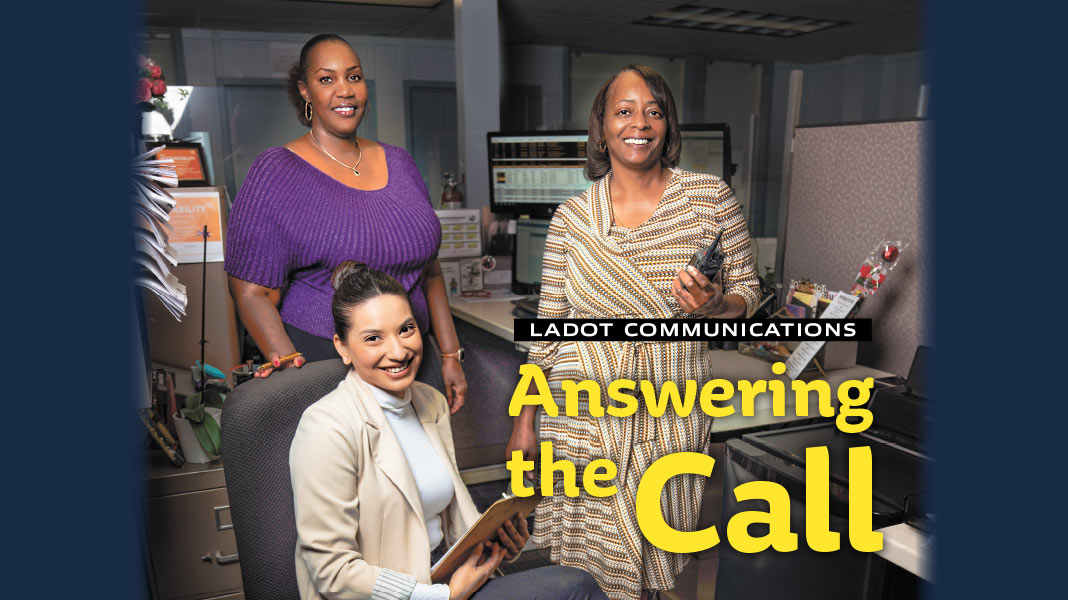

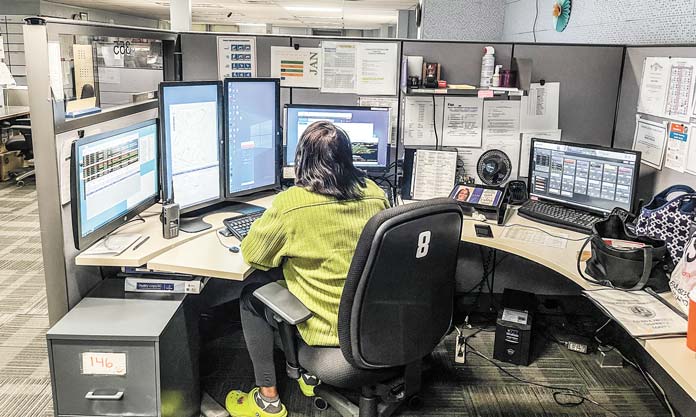
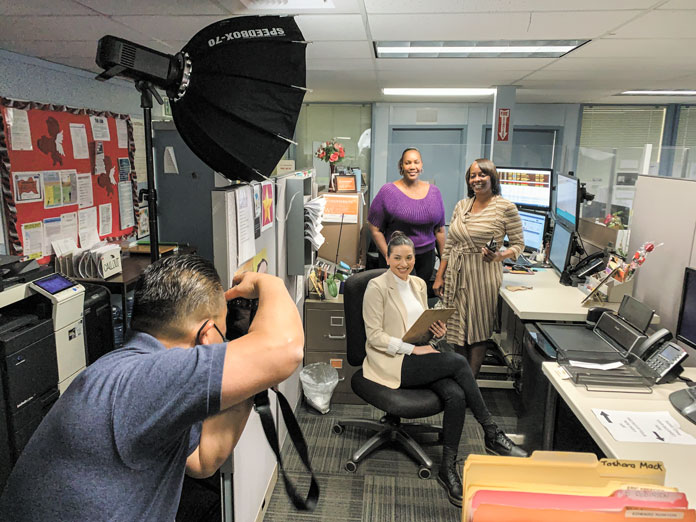 Club Director of Marketing Summy Lam (left) photographs (from front): Daisy Murillo, Administrative Clerk, 3 years of City service, Club Member; Renita Willis, Communications Information Representative III, 18 years, Club Member; and Ivy Garnett, Sr. Communications Operator II, 25 years, Club Member.
Club Director of Marketing Summy Lam (left) photographs (from front): Daisy Murillo, Administrative Clerk, 3 years of City service, Club Member; Renita Willis, Communications Information Representative III, 18 years, Club Member; and Ivy Garnett, Sr. Communications Operator II, 25 years, Club Member.
